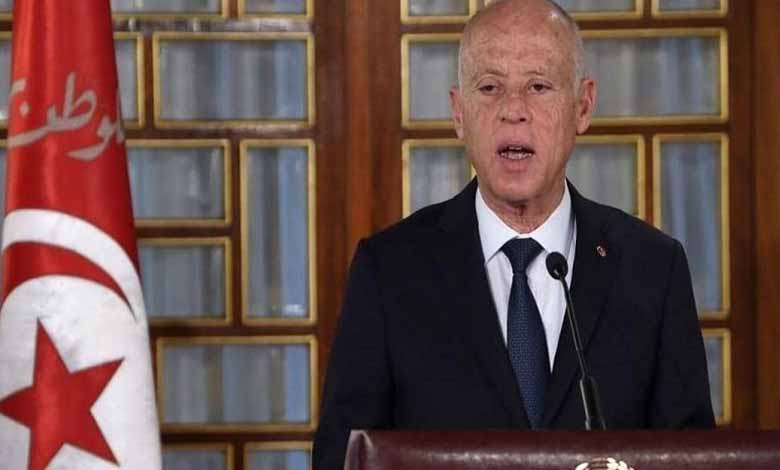Tunisian President Enforces Decree 14 Against Speculators and Monopolists

The government reintroduces the decree combating speculation and monopoly to address the manipulation of prices for essential goods or their withdrawal from the market.
Tunisian President Kais Saied enforces a decree that was prepared last year to combat speculation and monopoly. This comes after speculators and monopolists caused a crisis of shortages in essential goods like bread, coffee, and milk, leading to a social crisis.
President Saied is urging Tunisian authorities to take serious steps to reduce the influence of cartels, lobbies, and economic forces that he holds responsible for the “policy of starvation” and the current economic crisis. Many economic experts believe that Saied has identified the root cause of the long-standing economic issues, and that reform requires clear decisions, including the strict implementation of Decree 14 of 2022.
In response to Saied’s call during his meeting with the Minister of Justice, Leila Jaffel, on Monday to initiate criminal proceedings against all monopolists in the grain distribution sector and other commodities, which have seen an unprecedented increase in prices, steps have been taken to achieve this and confront lobbies legally.
Saied had dismissed Béchir El Khadhraoui, the head of the National Cereals Office, which is responsible for providing, supplying, and distributing grains. The office was held largely responsible for the crisis due to its method of distributing wheat quotas to mills, seemingly influenced by bakery cartels.
Civil society organizations, including the “IRADA” organization, have repeatedly called for the implementation of the decree, as it will prevent monopolies in many sectors. Monopolies have negatively impacted the economy and harmed the livelihoods of Tunisians, as influential lobbies controlled distribution channels.
Implementing the law against violators is expected to ease pressure on distribution channels, ensure goods are available in the market, and prevent monopolization. However, some political forces supporting centers of economic power and lobbies have downplayed the importance and feasibility of these decisions, considering them unfair.
Decree 14 of 2022 intensifies penalties for those involved in illegal speculation, whether individuals or legal entities. Penalties can extend up to life imprisonment and a fine of 500,000 Tunisian dinars for those caught with the intention of smuggling products out of the country.
The penalties also target anyone involved in “hoarding or hiding goods or commodities from any source or production method, with the aim of creating scarcity and disruption in the market.”
The law also sentences anyone committing illegal speculative acts during exceptional cases, health emergencies, epidemics, or disasters to 30 years in prison and a fine of 500,000 Tunisian dinars.
According to the decree, “an individual committing illegal speculative acts related to subsidized materials from the state budget or medicines and other pharmaceutical products” faces 20 years in prison and a fine of 200,000 Tunisian dinars. For other related acts of illegal speculation, the punishment is 10 years in prison and a fine of up to 100,000 Tunisian dinars.
The decree grants monitoring officials the authority to confiscate all goods, items, and documents related to crimes outlined in the decree or suspected of being involved in such crimes.
The decree also mandates supplementary penalties upon conviction for illegal speculative crimes, including deprivation of engaging in trade, deprivation of civil rights, and prevention from holding official positions in the state.
The law applies not only to natural persons but also to legal entities such as companies and institutions. The decree states that legal persons “will be subject to one of the supplementary penalties, including a prohibition from participating in public contracts for at least five years, and publishing the content of the judgment against the legal person in a newspaper at its expense, along with its dissolution and the complete confiscation of its assets for the benefit of the state.”
Implementing the decree aims to protect citizens’ purchasing power and provide goods in the markets, although the crisis is not solely restricted to speculation and monopoly, but also to scarcity and declining supply of certain essential goods.












